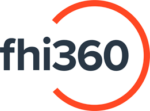education
Mainspring Consulting, in partnership with child and youth development experts, has created a practice framework intended to support work environments that employ older youth who have experienced foster care. This toolkit offers guidance on outreach and hiring, supervisory expectations, onboarding, and benefits. It ends with a call to action to create supportive work environments.
The Minnesota Education Equity Partnership has created toolkits to create safe and supportive schools for Immigrant & English Learner (EL) students, particularly those in Minnesota. MNEEP believes in the dignity of every student where their humanity is honored and they have the opportunity to succeed in school. Recognizing that challenges facing students threaten this reality, these toolkits are intended to support administrators and partners in fostering healthy environments for all.
Advancement Project, #POLICEFREESCHOOLS, and Alliance for Educational Justice has created an action kit designed to equip providers with the necessary tools to protect students identified as immigrants. The goal of the action kit is to provide partner providers with information regarding current landscape and resources to support with community efforts.
California Department of Justice (Office of the Attorney General) has provided a quick reference guide for school officials should an immigration-enforcement officer come to their academic institution. This quick reference guide aids conversations and ensures that all rights are protected.
Sponsored by North Carolina State University, the Virtual Martin Luther King, Jr. Project (vMLK) developed as a pilot project. The vMLK team in conjunction with faculty at Southease Raleigh Magnet High School developed a website with resources intended to offer learning experiences and no-cost professional development opportunities for North Carolina teachers and students grades 8-12.
EDSITEment offers resources for K-5 to discuss art, culture, history, and legacy of the Anishinaabe, Ojibwe, Chippewa tribal nations. Intended to support student knowledge in diverse people groups, this resource encourages differentiated and accurate understanding of those living throughout lands referred to as North and South America. Additional links are provided on the resource site to extend learning as well as guiding questions.
In research posted in April 2024, Afterschool Alliance presents survey findings showcasing 1,116 participating after school providers. These findings suggest that after school programs do support learning recovery post-COVID19, but continue to struggle with staffing and program costs.
While state and federal funding have helped to alleviate the challenges associated with cost, the diminishing funding may impact current staffing (reduction of personnel) and programming (reduction in program offerings), reducing access for at-promise children who need it.
Together, Gallup and the Walton Family Foundation (WFF) have partnered to conduct a multiyear study on the American youth experience and to bring light to their perspectives on education, learning, and personal growth. The latest study focuses on how young people consider themselves, their school, and their future possibilities. Data and a downloadable report are available through the Walton Family Foundation and Gallup websites.
Funded by the National Science Foundation, the Toyota USA Foundation, and the Mitsubishi Electric America Foundation, Afterschool Math Plus is a thematic lesson plan that covers four themes: ArtMath, Built Environment, Jump Rope Math, and MusicMath. Creating environments that build curiosity and create a love of learning surrounding math, these lesson plans empower students to use math in real world settings while spotlighting leading mathematicians who use arithmetic in creative ways. “When will I use this math in the world?” This question is answered throughout this resource – math is everywhere!
Need more information? Check out https://www.fhi360.org/.
Together for Girls is an international organization spotlighting the importance for youth advocacy and violence prevention against children. Their 2022-2023 impact report spotlights the preventability of violence and importance of change through partnership models.
The Annie E. Casey Foundation has produced its 35th edition of the KIDS COUNT Data Book. The report examines unprecedented declines as a result of the COVID-19 pandemic’s effect on children and education. The 2024 KIDS COUNT Data Book assesses recent trends in child well-being and provides data profiles by state. National data profiles are available in both English and Spanish through their website: aecf.org/resources/2024-kids-count-data-book
Sponsored in partnership with The Myron and Alayne Meilman Family Foundation, the Museum of Jewish Heritage: A Living Memorial to the Holocaust offers 11 free lesson plans for educators to use when discussing the Holocaust, social justice, and advocacy. This museum curriculum collection also offers a guide for educators using the resource.
The development of this resource was further supported by the New York City Department of Education.







